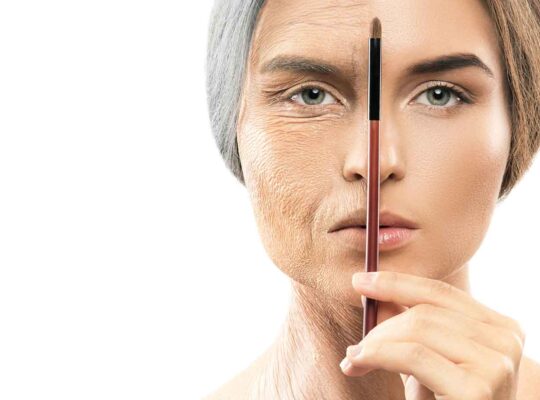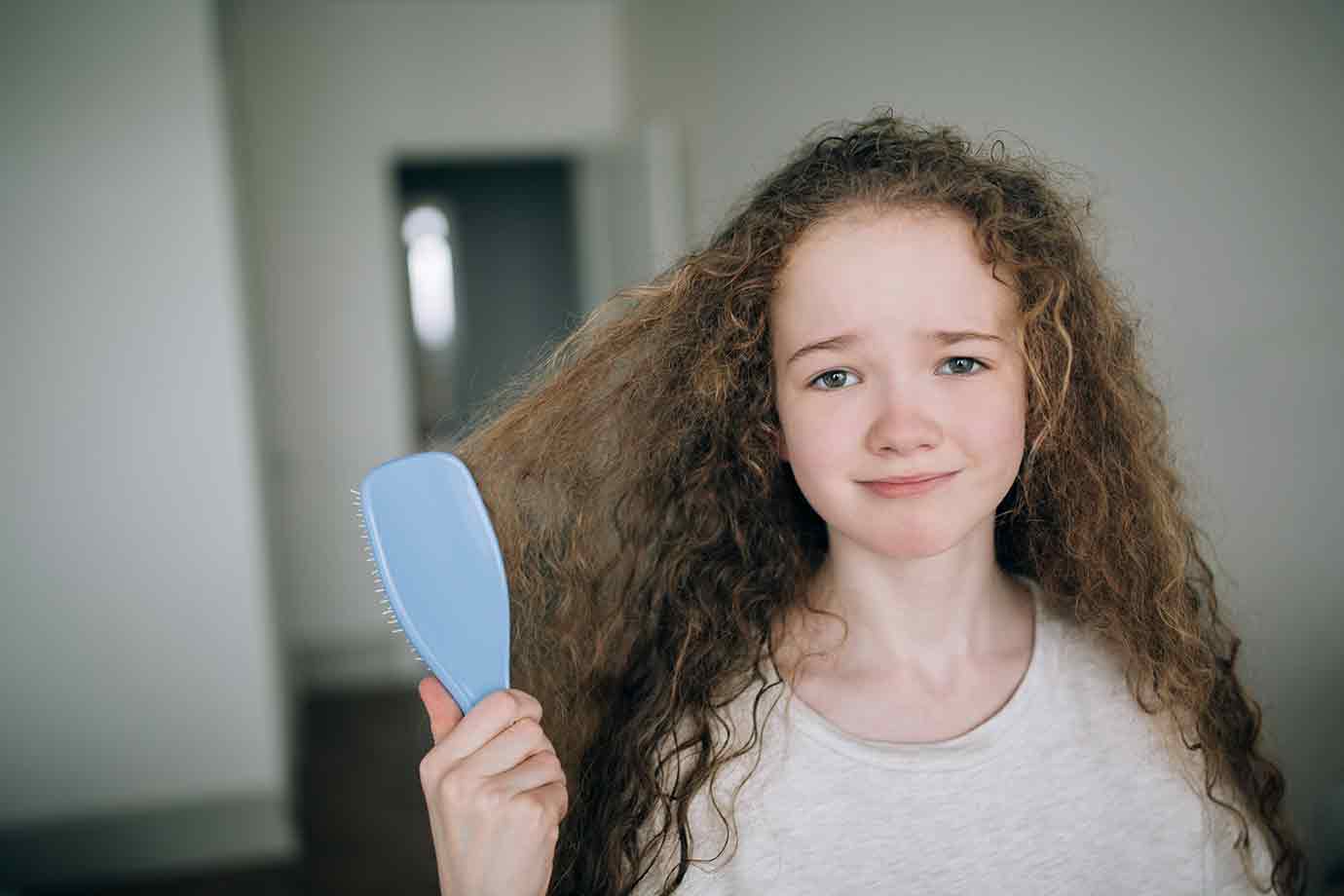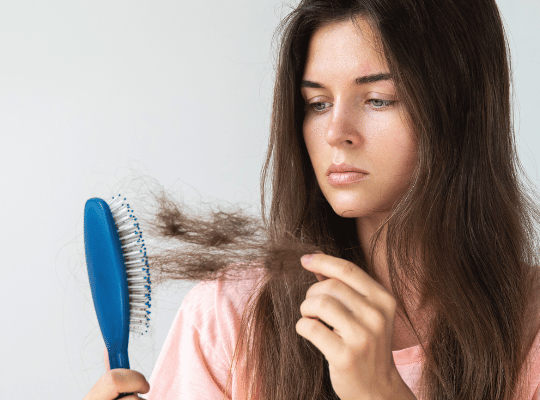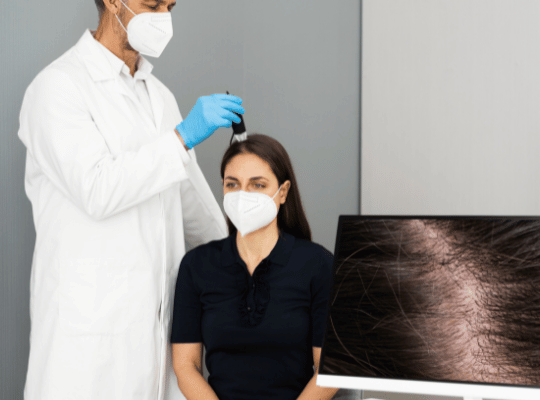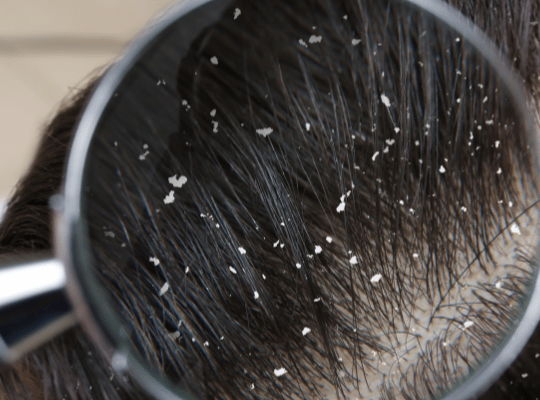Worried about losing hair in your 20s or 30s? Losing hair isn’t just something older people deal with—it’s happening to women in their 20s and 30s more often than you might think. In a world where having thick, healthy hair is often linked to beauty and youth, dealing with early hair loss can be really tough. But here’s the good news! Understanding what causes it and taking the right steps can make a big difference.
Understanding Hair Loss in Young Adults
Hair loss in women, especially at a young age, isn’t talked about enough. But why does it happen? A mix of factors could be to blame, from your genes to the way you live your life. Knowing these factors early on can help you make smart choices about how to prevent and treat hair loss, giving you more control over your hair health.
Common Causes of Hair Loss in Your 20s and 30s
Genetic Factors:
Your genes play a big part in your hair’s health. Androgenetic alopecia, also known as female pattern baldness, is the most common cause. If women in your family have dealt with thinning hair, you might be at higher risk. This genetic condition usually leads to gradual thinning, mostly on the top of your head.
Hormonal Imbalances:
Hormones control more than just your mood. Conditions like thyroid disorders and Polycystic Ovary Syndrome (PCOS) can cause hair thinning. Thyroid hormones are key for hair follicle function, so any imbalance can lead to hair loss. Similarly, PCOS causes hormone changes that often lead to noticeable hair thinning.
Nutritional Deficiencies:
What you eat has a big impact on your hair. Iron and Vitamin D are especially important for keeping your hair healthy. If you’re low on iron, it can make your hair weak and more likely to fall out. Vitamin D isn’t just for strong bones—it’s also important for new hair growth.
Stress and Lifestyle Factors:
Chronic stress is a common cause of early hair loss. It messes up your hair’s growth cycle, pushing more hair into the shedding phase. Not getting enough sleep can make stress worse, taking away the time your body needs to repair and regenerate, which hurts your hair health.
Medical Conditions:
Some medical conditions can also lead to hair loss. Autoimmune disorders like alopecia areata cause your immune system to attack hair follicles, leading to patchy hair loss. Scalp infections, though less common, can also damage hair and cause thinning.
Signs and Symptoms to Watch For
Gradual Thinning on the Top of the Head:
One of the main signs is slow thinning on the top of your head. This can start small and get worse over time, so it’s important to notice it early and think about ways to prevent hair loss.
Receding Hairline:
A receding hairline isn’t just something that happens to men. Women can have this too, but it often looks like a wider part instead of a receding line.
Excessive Shedding:
Seeing more hair in your brush or shower drain? Too much shedding can be a warning sign. While some shedding is normal, a big increase can mean something’s wrong.
Changes in Hair Texture:
Has your hair gone from smooth to brittle? Texture changes can be an early sign of hair problems.
Patchy Hair Loss:
Patchy hair loss or small, round bald spots are more serious and often point to autoimmune issues like alopecia areata.
Diagnosis and When to See a Doctor
Importance of Early Consultation:
It’s important to see a doctor as soon as you notice too much hair loss. Early diagnosis can rule out serious conditions and help start effective treatment.
Diagnostic Tests:
Doctors might suggest blood tests to check for nutritional deficiencies or hormonal imbalances. A scalp biopsy might be needed to look at the health of your hair follicles.
Ruling Out Underlying Health Conditions:
Taking care of hair loss isn’t just about how you look—it’s about your health. Ruling out underlying conditions makes sure more serious health problems aren’t missed.
Treatment Options
Medications:
Medications like Minoxidil and Finasteride are proven to help with hair loss. Minoxidil stimulates hair growth, while Finasteride helps by blocking a hormone linked to hair loss.
Topical Treatments:
There are many topical treatments that can nourish your scalp and strengthen your hair. Ingredients like biotin and niacin are known for boosting hair health.
Hair Restoration Techniques:
For more serious cases, hair restoration techniques might be needed. Hair transplants involve moving healthy hair follicles to thinning areas, while scalp micropigmentation creates the look of fuller hair without surgery.
Lifestyle Changes:
Managing stress through mindfulness practices or yoga can help your hair. Improving your diet with more iron, vitamin D, and other nutrients also supports healthy hair.
Natural Remedies and Supplements:
Natural remedies like essential oils and supplements like saw palmetto can boost hair health. But always talk to a doctor before starting new supplements.

Prevention Strategies
Maintaining a Healthy Diet:
Eating a diet rich in vitamins and minerals is key to preventing hair loss. Include foods high in omega-3 fatty acids, iron, and protein to keep your hair strong.
Regular Exercise:
Exercise improves blood circulation, which is important for hair follicle health. It also helps manage stress, which indirectly benefits your hair.
Proper Hair Care Routine:
Adopt a hair care routine that uses gentle shampoos and conditioners, and avoid harsh chemicals and heat styling tools.
Avoiding Harsh Chemical Treatments:
Limit chemical treatments like bleaching and perming, which can weaken your hair and speed up hair loss.
Managing Stress Levels:
Managing stress is important. Practices like meditation and deep breathing can reduce stress, which helps your hair.
Coping with Hair Loss
Emotional Impact:
Hair loss can affect how you feel about yourself, but it’s important to remember you’re not alone. Many women face the same challenges.
Building Self-Confidence:
Confidence comes from within. Focus on what you love about yourself, and try styles or accessories that make you feel good.
Support Groups and Resources:
Connecting with others through support groups can be comforting and provide practical advice. Online communities offer lots of shared experiences and support.
Future Outlook
Emerging Treatments and Research:
Research on hair loss is ongoing. New treatments and scientific advancements are on the horizon, giving hope for better solutions.
Importance of Ongoing Care and Monitoring:
Continual care is crucial. Regular check-ups with healthcare providers ensure that your hair health stays on track.
Final Thoughts
Hair loss in your 20s and 30s can be scary, but understanding the causes and treatments empowers you to take action. Whether through medical intervention or lifestyle changes, there are many ways to fight hair loss. Seek professional guidance and explore your options; your hair health is worth investing in. For more information and personalized advice, reach out to a healthcare provider today.
Frequently Asked Questions (FAQs)
What are the common causes of hair loss in women?
Hair loss in women can come from different things like hormonal changes, genetics, stress, nutritional deficiencies, and medical conditions such as thyroid disorders or autoimmune diseases.
Can hair loss be reversed?
In many cases, hair loss can be managed or even reversed with the right treatments, like medications, topical solutions, and lifestyle changes. Catching it early is important.
What dietary changes can help improve hair health?
A balanced diet rich in vitamins and minerals—especially iron, vitamin D, biotin, and omega-3 fatty acids—can make a big difference in keeping your hair healthy and reducing hair loss.
Are there any effective natural remedies for hair loss?
Yes, some natural remedies like essential oils (such as rosemary or peppermint), saw palmetto supplements, and a diet rich in antioxidants can help promote hair growth and scalp health.
When should I seek professional help for hair loss?
You should see a healthcare provider as soon as you notice unusual or heavy hair loss. Early diagnosis is key to ruling out underlying health issues and starting effective treatment.


